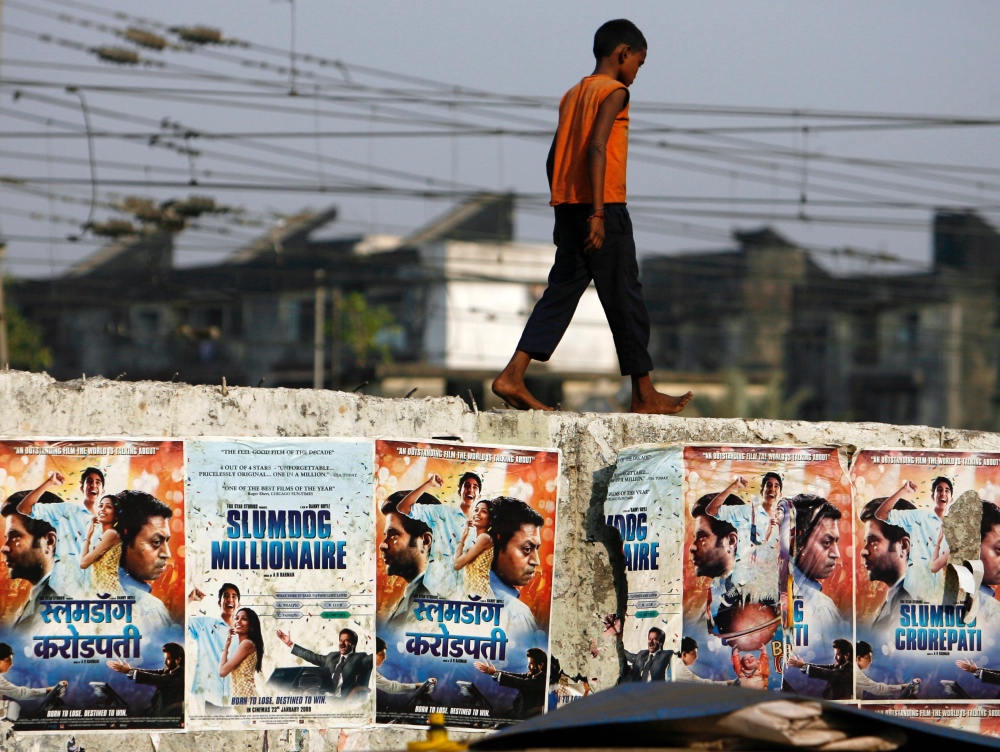Chennai, India
Thomson Reuters Foundation
Indian police have reunited thousands of missing and trafficked children with their families using a new facial recognition app that campaigners said was a “game changer” in tackling the problem.
Tens of thousands of children go missing every year in India and many are trafficked to work in eateries, handicraft industries, brick kilns, factories or into begging and brothels.

A boy living on the street walks on a wall displaying publicity posters of Golden Globe award-winning film “Slumdog Millionaire” as a train goes past in Mumbai, on 22nd January, 2009. PICTURE: Reuters/Arko Datta
Police in the southern state of Telangana developed the facial recognition tool as part of Operation Smile, a periodic drive to tackle child labour and missing children.
They scanned through more than 3,000 records on the app and were able to reunite more than half the children with their families in January.
“The results are very encouraging,” said senior officer Swathi Lakra, who oversaw the campaign.
“Earlier, the big challenge was what to do with the children after we rescued them, with housing them in shelter homes for a long time not being the ideal solution. Tracing their families and sending them home was imperative.”
Reuniting rescued children with their families is a mammoth task in India, a country of 1.3 billion people, and child rights campaigners say a lack of training and poor coordination between different states have hampered police efforts to do so.
The app uses a centralised database of photographs and identifies up to 80 points on a human face to find a match, making it easy to search even if only old photographs are available, police said in a statement.
It can match a million records per second and includes a name search tool that can zero in on the missing child’s parents or village using phonetics to get around the common problem of proper names being misspelt in records.
The app is regularly updated with data from shelters that house children rescued from the streets or from slavery.
Facial recognition artificial intelligence has sparked a global debate, with critics saying the technology can infringe people’s fundamental rights and breach data privacy rules.
The technology was last year trialled by Delhi police, who said they had identified nearly 3,000 missing children in just days.
Supreme Court lawyer N S Nappinai, an expert in data privacy legislation, said it was important to have effective measures to unite children with their parents, but urged caution over how their data was stored.
“It is essential to know how the data is going to be collected, for how long it is going to stored, how it will be used in the future and most importantly when it will be deleted,” she told the Thomson Reuters Foundation.
Varsha Bhargavi, an advisor to the Child Rights Protection Forum in Telangana, said police had been able to rescue thousands of children on their drives, but had in the past struggled to return them home.
“There are huge gaps in rehabilitation of these children, with funds remaining unutilised and repatriation back to their homes slow. The app maybe a game changer,” he said.





